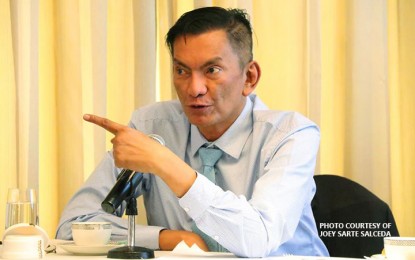
(File photo)
MANILA – The chair of the House Ways and Means Committee on Monday said the proposed value added tax (VAT) refund mechanism for foreign tourists is expected to increase annual tourist expenditures on shopping from PHP59 billion to PHP69.2 billion.
During the committee hearing, Albay Representative Joey Salceda said that based on a simulated model, tourist spending on shopping, accounting for increased tourist arrivals as a result of the refund system, will increase to PHP76.58 billion, or a total increase of around PHP17.6 billion in tourist sales, representing a growth by 29.8 percent.
He noted that the Palace has already approved for piloting, following a proposal, to institute a VAT refund system for tourist purchases from the Private Sector Advisory Council.
“The Philippines remains one of the few major Asia-Pacific tourist destinations without a working VAT tourist refund mechanism. Only India and Cambodia are the other countries in the top 15 tourist destinations in Asia-Pacific with this gap in procedure. This reduces the country’s competitiveness among its peer and neighbor countries,” Salceda said.
He said the National Internal Revenue Code, as amended, does not yet provide a legal basis for such a system, which foregoes gross value-added in the tourism sector.
He said high VAT rates on tourists have significant negative effects on consumption volume for hotels and restaurants, adding that the reduction in tourist consumption in these areas is 1.5 percent for every 1 percent in unrefunded VAT.
“The credibility of the VAT refund system appears to affect the destination choices of shopping-focused tourists. This is particularly the case for Australia, where a credible VAT refund system has created a tourist shopping industry," he said.
He also suggested that the Bureau of Internal Revenue adopt best practices in international VAT refund mechanisms.
“For example, most revenue authorities allow a full rebate, but charge a service fee paid to the collecting and refunding agent. Revenue authorities also typically employ an agent, who collects a service fee between 0.8-6 percent of the total sale. Most revenue authorities also require a minimum purchase value to process a refund application," he said.
Salceda is also filing a counterpart measure in the House “to expand the discussion on the proposal.” (PNA)
